
“Here is my favorite girl!” Father Brandt cried as Witburga ran at him and threw herself into his waiting arms.
“I’ve been waiting for you, and waiting and waiting!” she scolded. “You never come play with me!”
“Now, I do so,” he chuckled. “It only seems long because we have such fun together. Thinkest thou I have hidden presents in my beard?” he asked her as she pawed through it.

“No,” she said. “I only like to play with your fur.”
“My fur!” he laughed. “Am I a bear?”
“You’re Father Bear!” she cried, laughing at her own joke.
“And thou art Baby Lamb, and I shall eat thee up!”
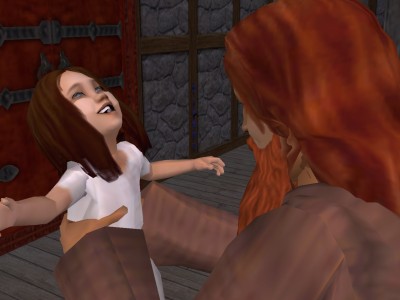
He played with his little niece for a while, and then he asked the nurse where he might find the girl’s mother.
“Her ladyship is upstairs in her little daughter’s room, that was,” the woman shrugged. “She often is.”
Brandt frowned and went up.
It was worse than he had feared.
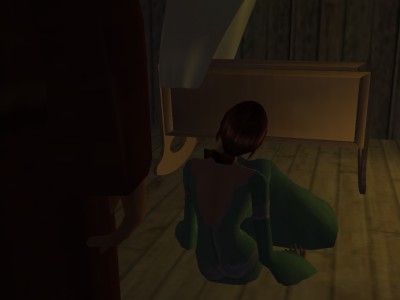
Colburga sat on the floor of the small room, empty but for a cradle and a lit candle she had placed on the floor next to it.
He stepped inside and gently closed the door behind him. “Colburga, dear heart,” he called softly in their native tongue.

Colburga did not move.
He walked over to the cradle and looked inside. Eadith’s doll lay in place of the girl, the blankets tucked up under its cloth chin.
“Colburga,” he said again, “This mustn’t be.”
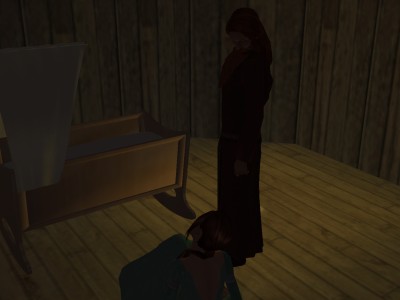
“Brandt,” she said softly, “Dost thou remember the woman Elfleda?”
“The poor lamb,” he sighed.
“I understand her now.”
“Rise, dear heart. This mustn’t be.”
“I shan’t do it,” Colburga said dreamily as Brandt helped her to her feet. “But I understand how she could.”
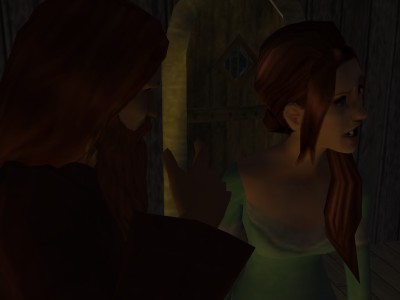
“Never say so, dear one. Thou hast a pretty daughter, a strong son, and a good husband. It is time to put away this doll and close up this room, and turn thy face to them again. ‘There is a time to mourn, and a time to dance.’”
Colburga smiled sadly down at the doll in the cradle. “Dost remember how she loved to dance? The time for dancing is done.”
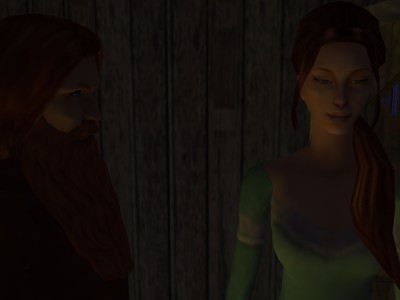
“Dost remember how she loved her mother? She would not have thee cry.”
Colburga turned to him at last. “Brandt, it is unbearable to lose a baby. But it is so much worse to lose a child. I knew her.”

“Thou shalt know her again in paradise, dear heart. But thou art more with thy dead children than with thy living babies. Thou dost Eadith and Margarethe no honor thus, and Witburga and Alric harm. Go down to them again, lest thou say some years hence: ‘They are grown, and I know them not.’”
“So I shall, when I have found the strength.”
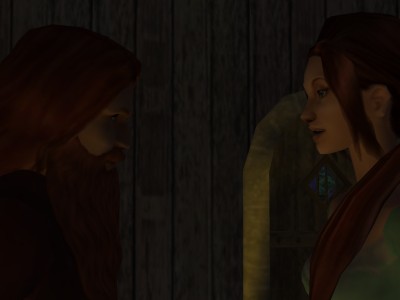
“Such strength can be found outside of thine own self, Colburga, and there is no shame in this. Trust in thy husband. He is thy strength. And he shall help thee put this cradle and this doll away, and he shall lead thee down to thy children. Is this not thy desire?”
She nodded, tears gathering in her eyes.
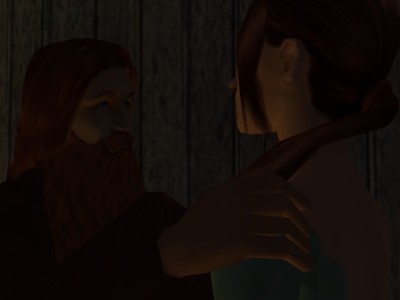
“I know it. Thou needest only hear it said. Thou art gone astray like a lost sheep; thou hast forgotten thy resting place, which is even on his breast. Now kiss me and say good night. I shall leave thee to say goodbye to thy daughters, and then I shall send thy husband to thee.”






She's lucky to have a brother like that. But I understand her, it must be awfull to lose a child.